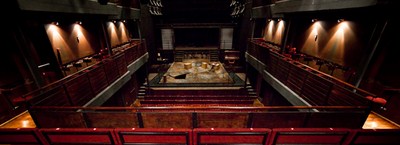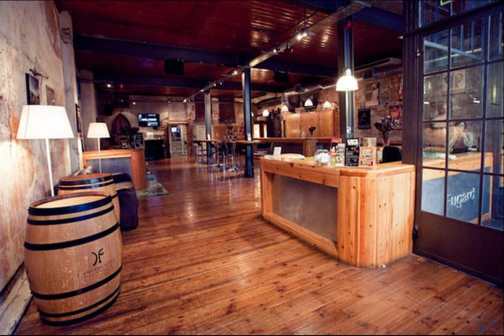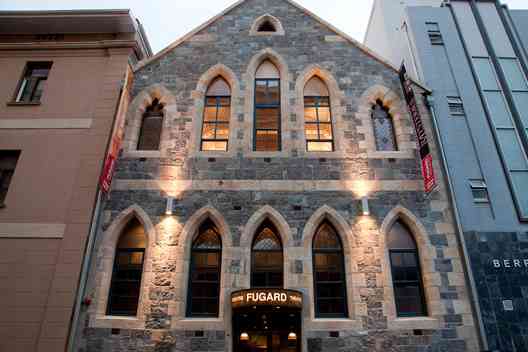District Six, a cosmopolitan once booming with creative juices, attracting musicians, writers and politicians in the struggle against apartheid. The area was rich with culture, music, foods and art. It enriched and provided ample contribution to the distinguished history of South African jazz music. Basil Coetzee, a musician who lived in District Six wrote a song (“District Six”) describing his time there. He was better known as a saxophonist and jazzman. Many artists and writers also found their inspiration in their cultural roots. It was a neighbourhood where children still played outside after dark. A time and place where music filled their homes and streets. Aromas of Malayan spices filled the air. It was a cultural hub with ethnic diversity. Located close to the port and the inner city, it housed the middle working class.
Established as the Sixth Municipal District of Cape Town in 1887, it was considered a mixed community consisting of free slaves, merchants, artisans, labourers and immigrants. It was a controversy in the fact that such an ethnically mixed community existed, but not for long. Removals and marginalization started in 1901 when the Africans were forcibly taken from their homes in District Six. By 11 February 1966, District Six was declared a white area and over 60 000 non-white occupants were removed and displaced to the barren outlying areas we now know as the Cape Flats. By 1982 the life of the once energized neighbourhood came to an end. The impression left by District Six has embedded itself within today’s Captonian culture. It still serves as inspiration to artists, musicians and writers of then and now. Artists such as Kenneth Baker and Gregoire Boonzaier place District Six on their canvases. Novelist Richard Rive wrote “Buckingham Palace, District six”. David Kramer and Taliep Peterson wrote an internationally known musical in 1982 named “District Six”. The memory of District Six and what it stood for remains with us to this day.
Athol Fugard, a playwright, novelist, actor and director, displayed his disdain for apartheid in all his works and writings. It all started after he dropped out of university to travel and see the world for 2 years. He managed to find a job on a ship as a court clerk. From this he witnessed the social injustice of the apartheid regime, the destruction of humanity. He was fueled with new motivation and inspiration, his first theatrical work was The Rehearsal Room. He wrote, directed and acted alongside his multiracial cast. He blatantly rejected segregation and was soon targeted by the government. Most of his works were banned. This did not stop him, he managed to write and publish an array of plays and books showing insight to the suffering of the oppressed. Most of his plays were internationally known, many of his books became films (some he starred in himself) and from this he received various awards and recognition in the fight for social justice and truth. Master Herold and the Boys is one of my beloved books, a bittersweet story portraying the conflicting interracial relationship of a boy and a black man that works for his family. The Blood Knot, however, was the reason that Fugard’s passport was confiscated. It was his novel Tsoti that received the most attention when it became an Academy Award-winning film in 2005. Fugard’s popularity grew despite the obsticles.

He has had over 30 plays that supports his cause for universal truth and humanity. In 2011 he received a Tony Award for Lifetime Achievement in Theatre. He has had the opportunity to work with John Kani, Winston Ntshona and the late Zakes Mokae. Soon he needed to have a place of his own in which to grow and carry on with his plays. He purchased the historic Sacks Futeran building located in Cape Town’s old District Six and turned it into the Fugard Theatre. It opened its doors early 2010 and to this day the theatre still honours and protects the memory and history of the vibrant community savagely uprooted during apartheid. Celebrating its memory with musicals and plays that either take place in the time of the district or carry the same message of compassion and equality for all.
The Fugard Theatre is a majestic gothic-style building that stands apart from the rest of its surroundings. It looks almost saintly with its church-like windows, as if inviting anyone that happened to pass by. My experience at the Fugard Theatre was a memorable one. Walking in you are met with a friendly face at the counter and the smell of ground coffee beans still warm in the espresso machine. The modern urban look complements the bare historic walls that surround you. One side of the room holds a clean vintage-looking bar with a bar stools and bartender to match. Standing in the center of the room are round tables, ideal for conversations over drinks. One the opposite side against the wall is the coffee bar and barista ready to whip up a creamy cappuccino. Next to it is a well-tuned black piano, free to anyone who wants to share a melody. Under protest I obliged in playing a short piece for a loved one, by the time I finished I had the ears of all the people in the room. Needless to say my embarrassment surpassed my wit in that moment when I heard an applause. Retreating to the corner of the room, we relaxed with a cup of cappuccino on a large leather sofa. When we were done, we were told to explore the view of Cape Town from on top of the roof of the theatre. Climbing, what seemed to be an endless staircase, we moved towards the light shining in from the glass door at the top. Breathless, we seized our reward and soaked in the view from the top. I could see the beautiful city of Cape Town stretching out before me. I could hear the people, the cars, and the desperate ambulance sirens calling the streets to clear. I could even view the cat stalking the pigeons of the neighbouring buildings. As the sun met the horizon, the actors were ready to present the musical… District Six Kanala.

The theatre
is intimate and close to a small stage,allowing everyone to view it from every angle and making sure you don’t miss a thing. The musical captured the spirit of District Six, with animated characters, bright costumes and music that would infect anyone to get up and dance. It shared the District’s colourful lifestyle, bittersweet moments and sad endings. Words and phrases native to the Cape Flats were comical and authentic to how we know Cape Town to be. Memorable songs such as “Ek is n visterman” still plays through your mind as you bounce out of the theatre back into the real world. I am impressed and I respect the ethic code of the Theatre as a beacon of hope for South Africa. It’s a living representation of what Athol Fugard stood for. I cannot wait for my next visit!
